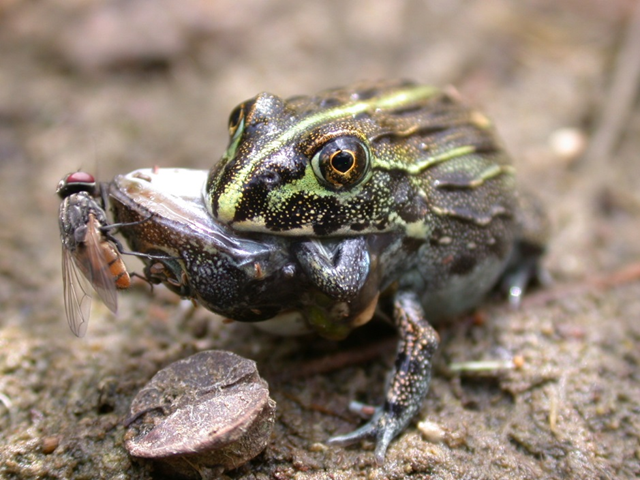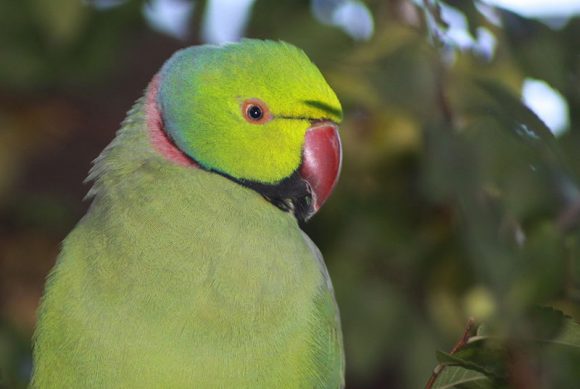5 October 2015 | By John Measey
Normally, frogs eat small invertebrates that easily fit into their mouths, but studies of stomach contents have shown that they sometimes eat eggs, tadpoles and even adults of other frogs. What are the conditions under which frogs eat frogs?

This was the starting place for a study led by C·I·B researchers John Measey, Giovanni Vimercati, André de Villiers, Mohlamatsane Mokhatla, Sarah Davies and Shelley Edwards. They reviewed 323 papers on frog diet, extracting variables that might help explain why frogs sometimes eat frogs. Over a fifth of these records reported predation on frogs (anurophagy), and there were some superfamilies that were particularly biased in this behaviour. The researchers found that large invasive frogs that live in forests with high anuran diversity are most likely to have a higher proportion of anurans in their diet.
“It is particularly interesting that we found invasiveness to be a significant determinant of anurophagy” said John Measey, lead author and C·I·B Senior Researcher, “this will help managers who are often unaware of the effects of invasive frogs.”


